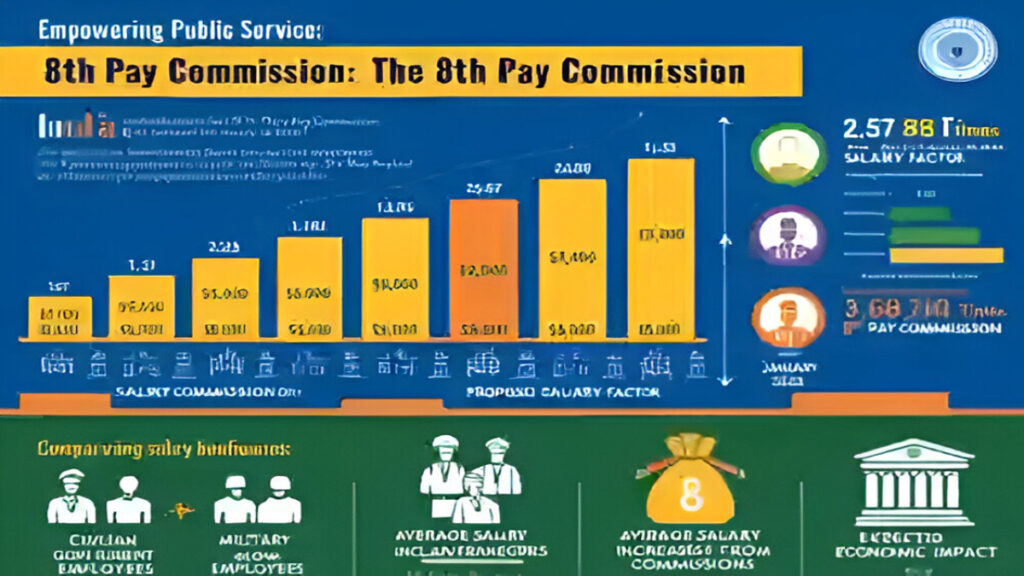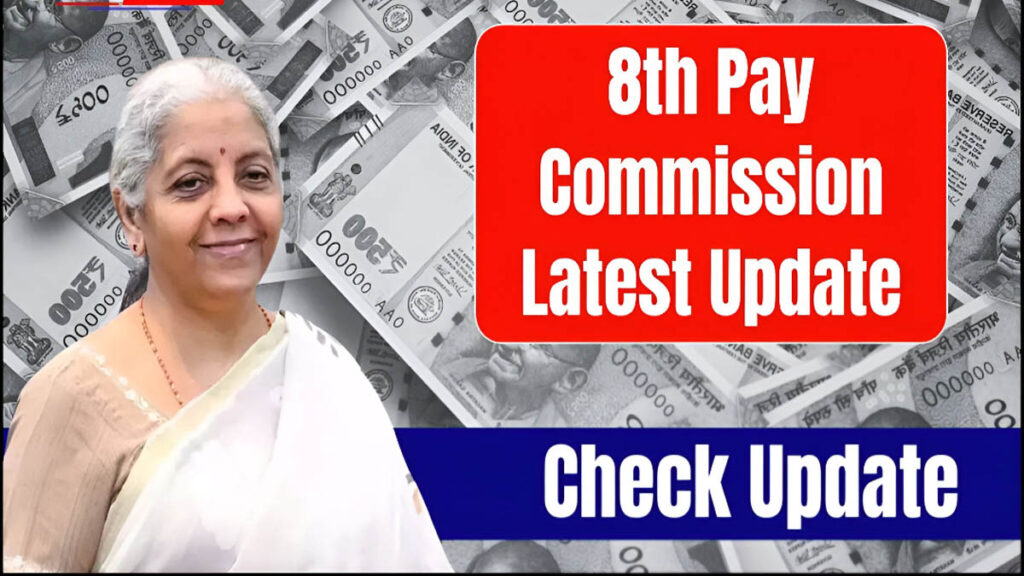Now Reading: 8th Pay Commission Delay: Centre Breaks Silence, Says ‘Implementation Will Happen Once…’
-
01
8th Pay Commission Delay: Centre Breaks Silence, Says ‘Implementation Will Happen Once…’
8th Pay Commission Delay: Centre Breaks Silence, Says ‘Implementation Will Happen Once…’

The Indian government has finally broken its silence regarding the much-anticipated formation and implementation of the 8th Pay Commission for central government employees and pensioners. In response to questions raised during the monsoon session of Parliament, Minister of State for Finance Pankaj Chaudhary clarified that the 8th Central Pay Commission (CPC) will be constituted only after its notification by the government, followed by the appointment of its chairman and members. The implementation of its recommendations, he stated, would occur only after the commission submits its recommendations and the government accepts them.
Around 1.12 crore central government employees and pensioners have been eagerly awaiting the 8th Pay Commission, which is expected to bring a significant hike in their salaries and pensions. The 7th Pay Commission’s tenure is set to conclude in December 2025, with the 8th Pay Commission’s recommendations likely to be implemented thereafter. However, growing delays in the commission’s formation have become a cause for concern among employees.
Government’s Stance and Reasons for Delay
In a written reply to the Lok Sabha, Minister of State for Finance Pankaj Chaudhary stated that the government has decided to form the 8th Pay Commission. Suggestions for its formation have been sought from key stakeholders, including the Ministry of Defence, Ministry of Home Affairs, Department of Personnel and Training, and various state governments. This process is crucial for finalizing the commission’s ‘Terms of Reference (ToR)’ and subsequently appointing its chairman and members.
While the formation of the 8th Pay Commission was initially announced in January 2025, there has been no concrete information regarding its chairman, members, or terms of reference yet. Employee organizations have expressed their displeasure over this delay and are demanding a faster process for the commission’s formation. Experts believe that the entire process, from the commission’s establishment to the implementation of its recommendations, could take considerable time.
What to Expect and When Can Implementation Happen
According to various reports and estimates, the implementation of the 8th Pay Commission could lead to a salary and pension hike of 30 to 34 percent for central government employees. A report by Ambit Capital also indicated the possibility of such an increase. The fitment factor, which is the primary multiplier for employees’ basic pay, is likely to be between 1.83 and 2.46 this time around. If implemented, this could lead to a significant increase in the minimum basic pay.
However, some reports also suggest that the actual salary hike might be closer to 13%, as the Dearness Allowance (DA), currently at 55%, will be reset to zero upon the implementation of the new commission.
Even if the 8th Pay Commission is constituted by August-September 2025, it could take at least 18 to 24 months for its report to be submitted, meaning the report would likely arrive by early 2027. Following this, the government might take another 6-8 months to review and implement the recommendations. In such a scenario, employees might have to wait until 2027 to receive their increased salaries. However, if there are delays in implementation, employees can expect to receive arrears from January 2026, as has been the case with previous pay commissions.
In conclusion, the government has clarified that the process for forming the 8th Pay Commission is underway, but its implementation will take time as it depends on the commission’s recommendations and the government’s acceptance. Central government employees and pensioners are eagerly awaiting the swift formation and implementation of this commission to receive relief amidst rising inflation.










